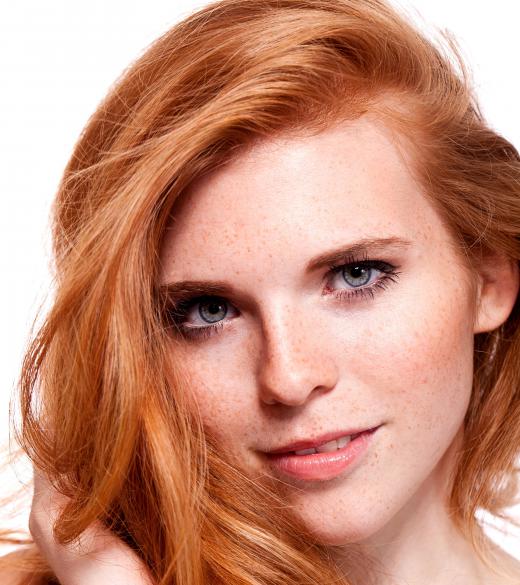At BeautyAnswered, we're committed to delivering accurate, trustworthy information. Our expert-authored content is rigorously fact-checked and sourced from credible authorities. Discover how we uphold the highest standards in providing you with reliable knowledge.
What Are the Pros and Cons of Using Henna for Hair?
There are several pros and cons of using henna for hair. This natural dye can help to condition and strengthen hair, although the metallic salts in the henna can severely damage hair that was previously dyed with salon products. Henna can give any hair color a rich, vibrant red tone of which regular hair colors are typically not capable. Despite this, dying hair with henna can be time-consuming and messy.
One of the most positive aspects of this product is its ability to strengthen and soften the hair. Using henna for hair naturally fortifies and seals the cuticle, making strands more resilient and easier to manage. As henna penetrates the hair cuticle and does not strip any existing color like most traditional dyes, it can add thickness to each individual strand of hair, increasing volume.

While henna can improve the look of unprocessed hair, it can have the opposite effect on hair that has been dyed with commercial hair color. Impure henna contains metallic salts that react with the ammonia found in most drugstore and salon hair colors. The reaction between the salt and ammonia can severely damage hair, causing it to break off or fall out, and even turn it a very noticeable shade of green. While pure henna does not contain these salts, the labeling of henna for use on hair is not regulated in most parts of the world, making it difficult to know what the reaction will be between the two products until it happens. For this reason, it is generally best to only use henna on virgin hair.

This natural hair dye comes in several different varieties, and different types of henna or additional natural ingredients can change the tone of the color the dye creates. Despite this, hair that is dyed with henna will always have a red color. The various shades of red that henna for hair can produce are typically richer and more multifaceted than other types of red hair dye. In general, the unique shades of red that henna creates is the primary reason people choose this hair dye over others.

Dying hair with henna is a messy and often time-consuming process, especially when compared to other types of hair coloring products. With most types of henna for hair, the application process requires mixing the product with ingredients such as vinegar and oil, and then adding them to boiling water. As henna for hair does not contain any chemicals or added ingredients to make the product stay in one place as many other hair colors do, this natural hair dye tends to get all over the place, and can permanently stain clothing or household items. While most hair dyes take less than an hour to process, henna for hair can take anywhere from one to five hours depending on the product and desired shade of red.
AS FEATURED ON:
AS FEATURED ON:















Discussion Comments
I fried my hair with too many dyes job and I just found out I have a medical condition that weakens my hair. I bought the Shielo Restoration Oil and applied it three times and voila'! My hair is back, beautiful and silky like when I was a teenager and I'm 47!
While others like the smell, I do not ever like any smells - but it's worth the results!
Post your comments